Misinformation and disinformation: A threat to democracy in Bangladesh

Right after the national polls closed in Bangladesh on January 7, the so-called independent election observers whom the government hosted spoke to the media about how the election was totally "free and fair," and there were no issues in how it was conducted. Former US Congressman Jim Bates was among the invited independent observers. Bates has been a controversial character throughout his career, having been accused of sexual harassment and using bad cheques to support his election campaign in 1990. Bates' visit to Bangladesh is reportedly part of his promise to the government "to engage the current congressmen and senators" in its favour, as mentioned in the June 2021 newsletter published by the Bangladesh embassy in Washington, DC. Pro-government news networks saw the chance and immediately titled headlines such as "US observer calls election free and fair."
This kind of reporting is essentially the type of misinformation that is most common in Bangladesh, where headlines are drawn with double meaning in order to confuse readers and muddy political discourse with false narratives. Of course, the US embassy was prompt to state that no official election observation team had been sent to Bangladesh to observe the most recent election. This was in line with foreign missions of the UK, Canada, and others that sought to restate the absence of official election observers from the respective nations.
In today's digital age, the spread of misinformation and disinformation has arisen as a major challenge to global democracy. Nowhere is this more evident than in Bangladesh, where the propagation of false narratives and malevolent propaganda is undermining the democratic process and eroding public trust in institutions. From social media echo chambers to sensationalist news outlets, the spread of misinformation is stifling democracy in Bangladesh and undermining the country's progress towards a more open and inclusive society.
Misinformation and disinformation campaigns in Bangladesh are perpetuated through various mediums, including social media platforms, online news websites and messaging apps. While serving as valuable communication and information dissemination tools, these platforms have also become breeding grounds for the rapid spread of false narratives and propaganda. Political actors, extremist groups and foreign entities often exploit these channels to manipulate public opinion, polarise communities, and advance their own agendas. Now, with the benefit of cutting-edge AI technology, the spread of misinformation and disinformation has become even more virulent. A recent investigative piece published in the Financial Times on December 14 last year clearly indicates how pro-government news outlets and influencers in Bangladesh promote disinformation by using cheap AI tools to produce deep fake videos. The report identified several AI-generated videos to spread disinformation against the opposition BNP as well as the US.
One of the most concerning consequences of these kinds of misinformation and disinformation is their potential to incite violence and unrest. False rumours about religious or ethnic minorities, political opponents or contentious issues can quickly escalate tensions and lead to communal clashes or acts of vigilantism. Moreover, in a country such as Bangladesh, where access to reliable information is already very limited, misinformation can significantly distort perceptions of reality, making it difficult for citizens to make informed decisions or hold their leaders accountable.
Furthermore, misinformation and disinformation pose a significant challenge to the integrity of public discourse in Bangladesh. When falsehoods are presented as facts, and when information is spread under false pretences, genuine dialogue and debate become increasingly difficult, hindering the exchange of ideas and the search for common ground. In September 2023, AFP's fact-checking team in Bangladesh unearthed a coordinated campaign of hundreds of op-eds by fake experts praising the government's policies. AFP said that the "articles overwhelmingly endorse narratives pushed by Dhaka, with some posted on Bangladesh government websites." This kind of blurring of lines between news and propaganda outlets on social media platforms raises severe concerns about the erosion of public faith in reliable sources of information.
Unfortunately, over the last decade, the government has adopted increasingly harsh efforts to censor independent voices and the media, particularly through the blanket application of the Digital Security Act (DSA). By extensively regulating the press, the government has created the ideal breeding ground for the propagation of misinformation, as people increasingly turn to unverified reports to gain insights that are not available in regular media. In such an environment, polarisation deepens and constructive engagement gives way to hostility and division.
Misinformation and disinformation have had a far-reaching impact on Bangladesh's political environment, including the loss of democratic norms and institutions as well as societal instability. Malicious actors attempt to delegitimise the democratic process and damage the credibility of elected officials by circulating misleading information about electoral processes, candidates or political parties. This lack of trust in democratic institutions can have drawn-out implications, instilling cynicism in citizens and opening the path for authoritarian tendencies to flourish.
Addressing the scourge of misinformation and disinformation in Bangladesh requires a multifaceted approach involving government intervention, media literacy initiatives, and collaborative efforts from civil society organisations and technology companies. State Minister for Information and Broadcasting Mohammad Ali Arafat recently stated to the press that the government wanted "disinformation and rumour-free mass media along with ensuring full freedom of the press." This is a very good sentiment to have. To build on it, the government must enact legislation to hold those who spread false information to account while protecting freedom of expression and the press. Investing in education and media literacy initiatives can help citizens evaluate information and discern between reliable sources and misinformation.
Furthermore, social media platforms and tech companies must be held accountable for preventing the spread of misinformation through efficient content moderation and fact-checking systems. By promoting transparency and accountability in their algorithms and standards, these platforms may assist in preventing the spread of misinformation and create a more informed online environment. A recent study conducted by Digitally Right, titled "Hits and Misses: An Examination of Meta's Political Ad Policy Enforcement in Bangladesh," published on December 25, 2023, highlighted an urgent issue in which instances of incomplete or vague information in disclaimers provided by advertisers fell short of Facebook's transparency standards and hints at potential gaps in the platform's verification processes, leaving users in the dark about the sources funding political ads. Meta has to address these issues in Bangladesh and other countries, many of which are preparing for their respective national elections.
Countering misinformation and disinformation is about protecting the integrity of Bangladeshi politics, defending democratic norms and cultivating a society based on trust, transparency, and informed citizenry. By facing this challenge head-on and embracing collaborative solutions, Bangladesh can reduce the negative consequences of disinformation while also strengthening its democratic foundations to benefit all Bangladeshis.
Zillur Rahman is executive director at the Centre for Governance Studies (CGS) and a television talk show host. His X handle is @zillur
Views expressed in this article are the author's own.
Follow The Daily Star Opinion on Facebook for the latest opinions, commentaries and analyses by experts and professionals. To contribute your article or letter to The Daily Star Opinion, see our guidelines for submission.

 For all latest news, follow The Daily Star's Google News channel.
For all latest news, follow The Daily Star's Google News channel. 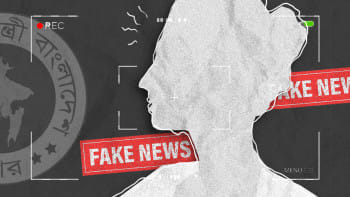
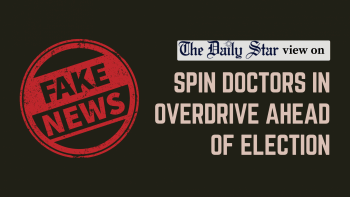



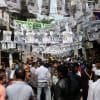
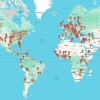


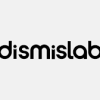


Comments